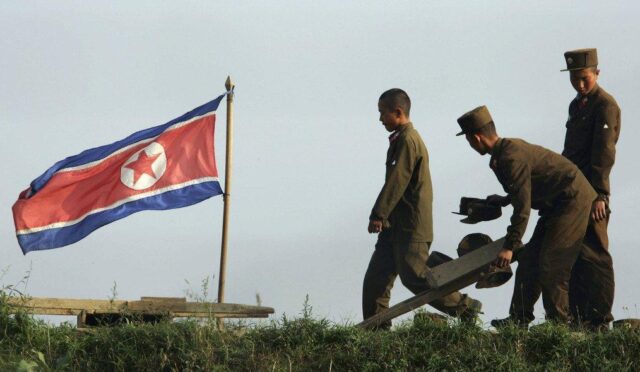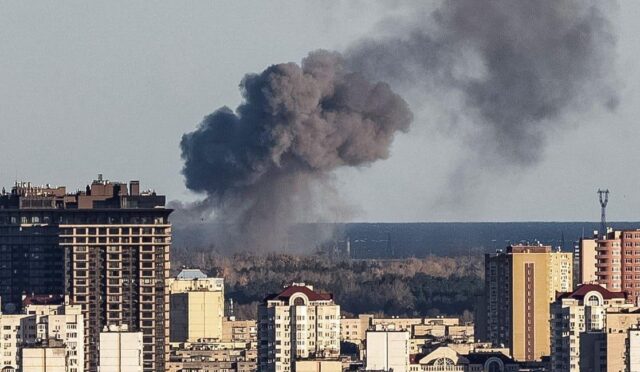Gaza Truce: Ongoing Negotiations for Peace and Aid
On Sunday, Israel prepared to send a delegation to Doha to continue discussions about the Gaza truce. This move follows Hamas’s call for urgent negotiations to begin the second phase of the ceasefire, which they hope will lead to a lasting resolution in the region. Representatives from Hamas, the Palestinian militant group that fought a devastating war against Israel until a ceasefire took effect on January 19, met with mediators in Cairo over the weekend. They highlighted the critical need for humanitarian aid to be allowed back into Gaza without any restrictions or conditions.
Mahmoud Mardawi, a senior Hamas leader, articulated to AFP the group’s insistence on starting the second-phase negotiations immediately, under the previously agreed terms. He emphasized that this would facilitate a permanent end to the ongoing conflict. The principal demands of Hamas for this new stage include a complete withdrawal of Israeli forces from Gaza, the lifting of the blockade, rebuilding efforts in the devastated Palestinian territory, and financial support. Such measures are seen as essential for establishing long-term peace.
Positive Signs Amidst Tensions
Following discussions with mediators, Hamas spokesperson Abdel Latif Al-Qanoua reported that initial signs were encouraging. Meanwhile, Israeli Prime Minister Benjamin Netanyahu’s office confirmed the dispatch of delegates to Doha. Israeli media also indicated that the security cabinet would discuss the situation later that day. Israel has expressed a desire to extend the current truce phase until mid-April, building on the temporary calm that followed a previous six-week ceasefire.
The first phase of the ceasefire led to the exchange of 25 living hostages and the return of eight bodies in exchange for around 1,800 Palestinian prisoners in Israel. This ceasefire marked a significant pause in over 15 months of fierce conflict in Gaza, during which a substantial portion of the local population was displaced due to relentless Israeli military operations initiated after Hamas’s attack on October 7, 2023.
Humanitarian Crisis in Gaza
The ceasefire allowed critical humanitarian supplies, including food, shelter, and medical aid, to enter Gaza. However, following Israel’s renewed blockade, UN rights experts accused the Israeli government of “weaponizing starvation.” This dire situation was vividly illustrated by Haneen al-Dura, a displaced Palestinian widow, who recounted her family’s hardships living on the streets, struggling to survive amongst the ruins.
“As the provider for my family, it was heartbreaking, and I couldn’t sleep at all during the night,” she shared with AFP, describing the weeks spent in squalor until they finally received a tent. The dire conditions faced by civilians highlight the urgent need for renewed humanitarian efforts and the critical importance of ongoing negotiations for peace.
Warnings from the US and Hostage Dynamics
Last week, U.S. President Donald Trump issued a stark warning about further devastation in Gaza if all remaining hostages were not released. Dubbed a “last warning,” he cautioned that consequences would be dire not just for Hamas leaders but for all Gazans. “A beautiful future awaits, but not if you hold hostages. If you do, you are DEAD!” Trump proclaimed, escalating the tense situation.
In response, Hamas insisted that Trump’s threats would only embolden Israel to ignore the terms laid out in their ceasefire agreement. The Trump administration has acknowledged the onset of unprecedented direct talks with Hamas, a sharp pivot from its previous stance since designating the group as a terrorist organization in 1997.
The Hostage Count and Proposed Solutions
Of the 251 hostages taken by Hamas, 58 remain in Gaza, including five Americans. Tragically, four American hostages have been confirmed dead, while one, Edan Alexander, is believed to still be alive. Trump’s earlier proposal to evacuate Palestinians from Gaza faced widespread condemnation, prompting Arab leaders to propose an alternative solution.
This alternate plan suggests funding the reconstruction of Gaza through a dedicated trust fund with the Ramallah-based Palestinian Authority resuming control of the territory. “It’s a good-faith first step,” commented Steve Witkoff, Trump’s envoy for the Middle East, as he prepares to return to the region for discussions related to the ongoing war in Ukraine.
Israeli Hostage Families Demand Action
During a weekend rally in Tel Aviv, families of Israeli hostages appealed to their government to uphold the ceasefire. Einav Zangauker, mother of hostage Matan Zangauker, stressed the urgency of preventing the resurgence of conflict, stating, “The war could resume in a week – they’ve even chosen a name for the operation.” Her poignant remarks underscored the deep fears shared by families waiting for their loved ones to return safely.
The initial Hamas assault claimed the lives of 1,218 Israelis, the majority of whom were civilians, according to official statistics. In retaliation, Israel’s offensive has tragically resulted in at least 48,453 deaths in Gaza, largely among civilians, as confirmed by the health ministry in the Hamas-controlled area. The United Nations recognizes these statistics as credible, further highlighting the horror and urgency of the ongoing situation.






